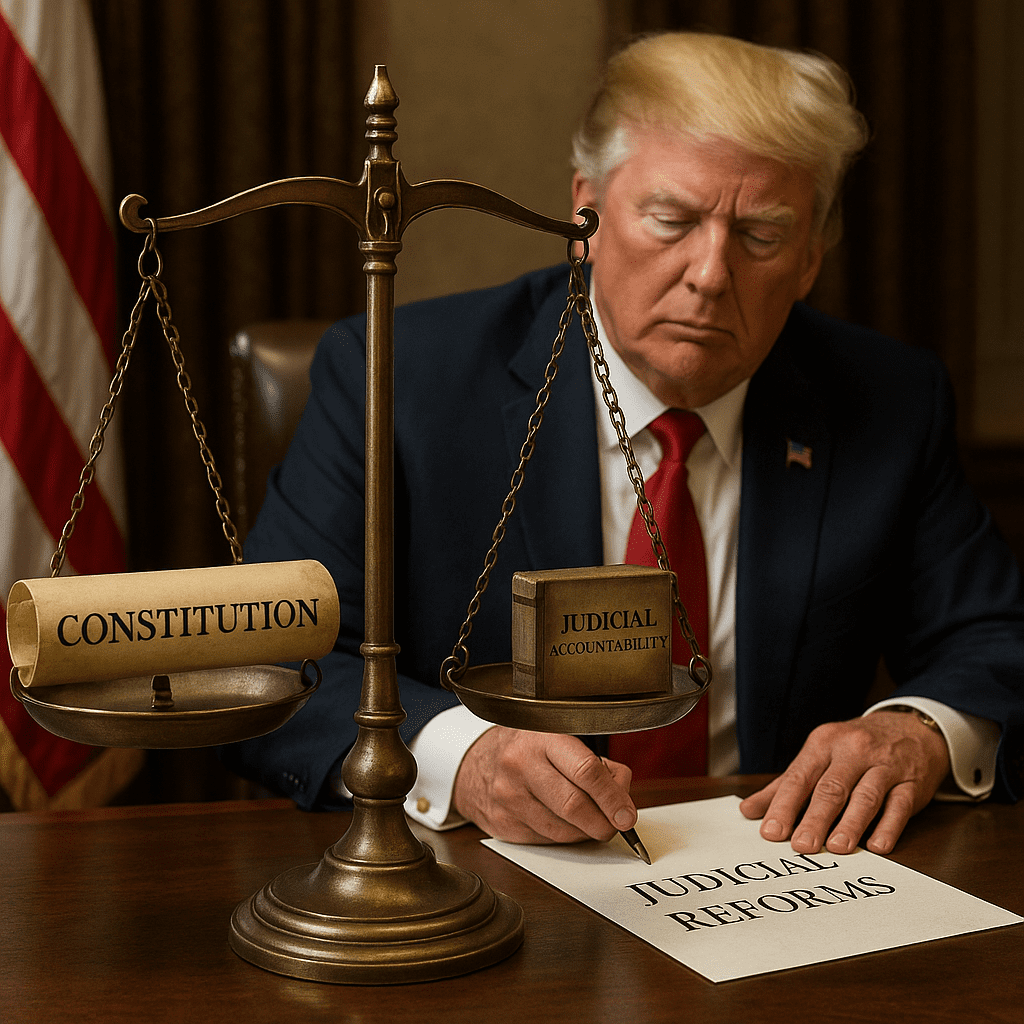In a decisive move to reinforce the integrity of the judicial system, President Donald Trump has introduced a series of measures aimed at addressing the influence of activist courts. This initiative underscores the administration’s commitment to ensuring that judicial decisions align closely with the Constitution and the will of the American people.
Central to this effort is the administration’s challenge to the practice of nationwide injunctions issued by lower courts. These injunctions have, at times, halted federal policies across the entire country based on the ruling of a single judge. By seeking to limit such broad judicial actions, the administration aims to prevent individual judges from unilaterally obstructing policies that have been democratically enacted.
Additionally, the administration has taken steps to scrutinize and, where necessary, suspend security clearances for individuals and law firms perceived to be engaging in activities that undermine national interests. For instance, Executive Order 14246 targeted Jenner & Block, citing concerns over their previous associations and policies. While this move is intended to safeguard sensitive information and ensure that legal counsel aligns with national priorities, it has raised discussions about the balance between national security and the independence of the legal profession.
Furthermore, the Department of Justice has been directed to halt the initiation of new civil rights cases. This directive is part of a broader strategy to reassess and streamline the department’s focus, ensuring that resources are allocated effectively and that existing cases are pursued with the utmost diligence. However, this pause has prompted conversations about the potential implications for ongoing civil rights protections and the department’s role in upholding them.
The administration’s approach also includes a reevaluation of diversity, equity, and inclusion (DEI) programs within federal agencies. By issuing executive orders to curtail certain DEI initiatives, the administration seeks to eliminate programs it views as discriminatory or misaligned with constitutional principles. While the intent is to promote a merit-based system free from bias, these actions have sparked debates regarding the role of DEI programs in fostering inclusive workplaces and addressing systemic inequalities.
In implementing these measures, the administration acknowledges the complexities involved. The process of reviewing and potentially revoking security clearances, for example, requires meticulous attention to legal standards and due process to avoid unintended consequences. Similarly, the reassessment of DEI programs necessitates a careful balance between eliminating perceived biases and maintaining commitments to diversity and inclusion.
Moreover, the initiative to limit nationwide injunctions involves navigating the intricate relationship between the executive and judicial branches. While the goal is to prevent overreach by individual judges, it is essential to uphold the judiciary’s role as a check on executive power, ensuring that this balance is preserved.
In conclusion, President Trump’s initiative to address the influence of activist courts represents a concerted effort to align judicial actions with constitutional principles and democratic mandates. While these measures are designed to enhance accountability and streamline government functions, they also present challenges that require careful consideration and implementation. The administration remains committed to these reforms, confident that, with thoughtful execution, they will contribute to a more effective and principled governance structure.
—
*About the author: Daniel Owens reports on education control, judicial activism, and federal influence over schools. He follows curriculum mandates and the legal trends shaping young minds.*



